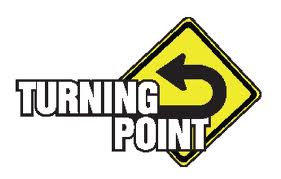 In my own experience, and in my exposure to the experiences of other women who are abuse victims, it is apparent that there is a bizarre, almost word-for-word script associated with the behaviors and character qualities of abusers. Although I have not been exposed to physical abuse, a majority of these earmarks seem to be evident, whether the abuse is physical, verbal and/or emotional. Here we go…
In my own experience, and in my exposure to the experiences of other women who are abuse victims, it is apparent that there is a bizarre, almost word-for-word script associated with the behaviors and character qualities of abusers. Although I have not been exposed to physical abuse, a majority of these earmarks seem to be evident, whether the abuse is physical, verbal and/or emotional. Here we go…
All posts by Cindy
The Turning Point
 It was the spring of 1993. I had been living in an abusive marriage for many years and had continued to honor my husband and submit to him as any “good” wife was supposed to, living under his “umbrella of authority.” But there was a critical turning point, and this was it.
It was the spring of 1993. I had been living in an abusive marriage for many years and had continued to honor my husband and submit to him as any “good” wife was supposed to, living under his “umbrella of authority.” But there was a critical turning point, and this was it.
The evening before, I had learned that my husband had initiated a dating relationship with another woman months before, not long after I had given birth to our third child. Though he assured me that the relationship was short-lived, I was devastated.
Emotionally spent and equally disillusioned, I left for work early the following morning, if nothing else just to put some distance between us. I wondered if I could ever trust him again, or if I even wanted to. Still, I couldn’t think only of myself; I had to think of our children. I had always believed that God could heal anything – even a broken marriage. But, at that moment, I questioned it all.
Verbal and Emotional Abuse – A Primer – Part VII
“Then I will make up to you for the years that the swarming locust has eaten…” Joel 2:25
Catching Your Breath
After living so many years in an abusive relationship and finally finding the strength and the will to leave, you want to believe that everything will get easier.
Many things will probably get easier, and others may become more difficult. Hopefully, a little time and distance away from the abuser will enable you to de-stress and rest. You will begin to catch a glimpse of what life is supposed to be like. Just the freedom to be imperfect is a gift. Awaking in bed alone and at peace is a welcome change from waking up alert and afraid; trying to figure out some new way of protecting yourself from someone who is determined to hurt you.
Continue reading Verbal and Emotional Abuse – A Primer – Part VII
Verbal and Emotional Abuse – A Primer Part VI
 Seeing an Abusive Relationship for What It Is
Seeing an Abusive Relationship for What It Is
The slow and painful progression from a loving spouse with hopes and dreams has taken the enabler-victim to a place where she has been compelled to ask for help, acknowledge that she is living in an abusive relationship, build a support network and do what she must to protect herself. After years of emotional assault, she is exhausted but determined to demand change.
Many women lack the strength to face their abuser or would clearly be unwise to do so. Physical violence is one short step beyond the verbal, and it may be safer for the victim to simply leave without abuser’s knowledge, taking children out of harm’s way, as well. This is where it is important for abuse victims to have a plan. In developing a support network, she needs to consider safe places where she may stay and get legal protection (such as a legal separation or a restraining order), if necessary. Threats or retaliation should be taken seriously.
Continue reading Verbal and Emotional Abuse – A Primer Part VI
Verbal and Emotional Abuse – A Primer – Part V
In this ongoing chronicle of life with a verbal or emotional abuser, the enabler-victim, after months or years of living with a hyper-critical, controlling man, finally reaches a point of desperation, shares her pain, and asks for help.
When an enabler-victim finally gets to a place where she knows she can’t live in that kind of environment any longer, she will dare to open up to someone she believes is safe for her. It will not be easy to try to explain all that she has endured for however long she has endured it. It may seem crazy to someone else. She knows that they may not believe her, particularly since she has been propping up a carefully crafted façade of a happy family for years.
The risk seems huge. Yet, when she finally shares the truth and finds a sympathetic ear, just having the opportunity to vent some of her stress and having someone listen and offer her encouragement, refer her to a good counselor, or extend a hand of support is a long-overdue breath of fresh air. Someone has graciously put an arm around her and confirmed that she is not crazy.
With just that slightest nudge, she will, hopefully, begin to accept that what she has been living with is wrong. She did not cause the abuser to hurt her. What she needs now is information, emotional support and options to ensure her safety.
As she begins to seek resources and open up to other trustworthy individuals, she gains new insight and additional affirmation. She will hopefully begin to explore more about the dynamic of abuse an seek out books, articles and support groups, and come into contact with others who have survived similar relationships.
She is relieved to know that she is not alone. But, when the truth hits home, it can also be debilitating. It seems odd, but her mind has worked so hard to keep the trauma under wraps, that when the full weight of the knowledge bears down, it is a heavy burden indeed. She grieves the years she has lost to abuse, the loss of love of someone she cared about deeply, and wonders at the long road of recovery ahead.
The enabler-victims sadness and grief often turns to anger. Now seeing more clearly the vast arsenal that the abuser has kept at the ready to belittle and control her, his next attack finds her ready. After fulfilling a role of a fearful, submissive wife, she struggles with the realization that she must meet her abuser head-on. When he begins his criticism, she may see it for what it is, and rebuke it to his face. She might tell him that he is an abuser, and he will predictably mete out blame for any issues in their relationship. The abuser refuses to relinquish his power. To do so would make him too vulnerable. He can’t have that.
Continue reading Verbal and Emotional Abuse – A Primer – Part V


